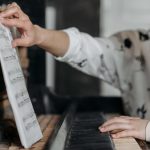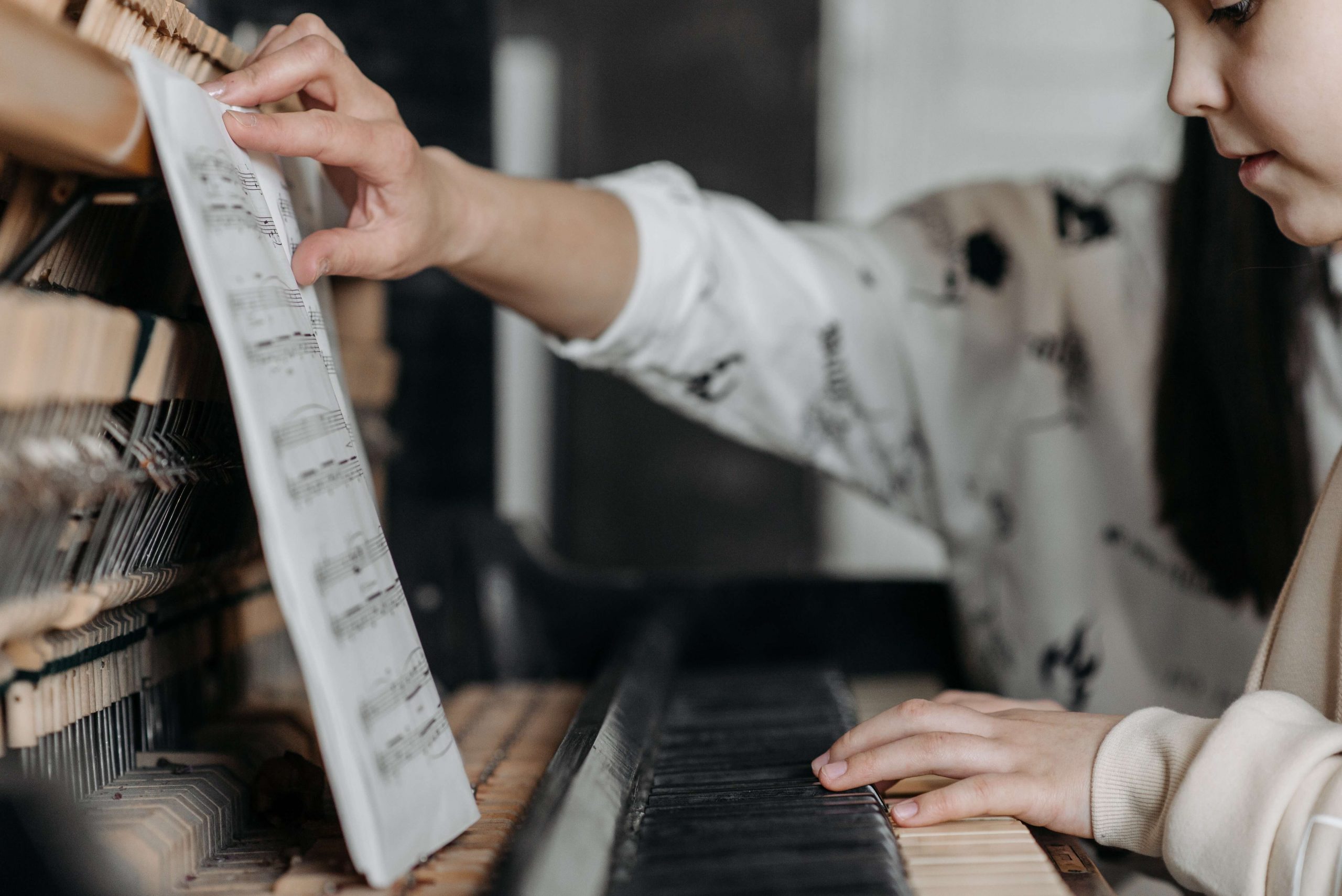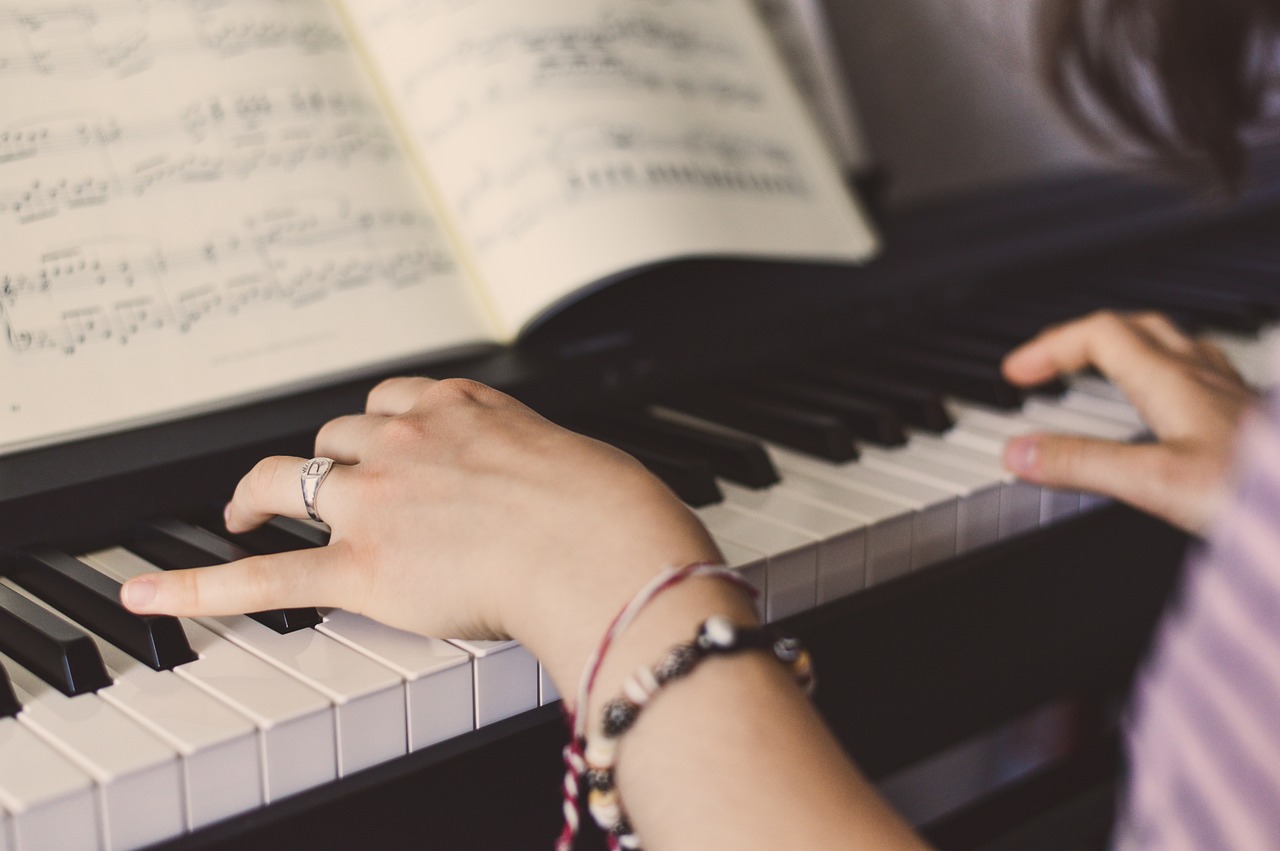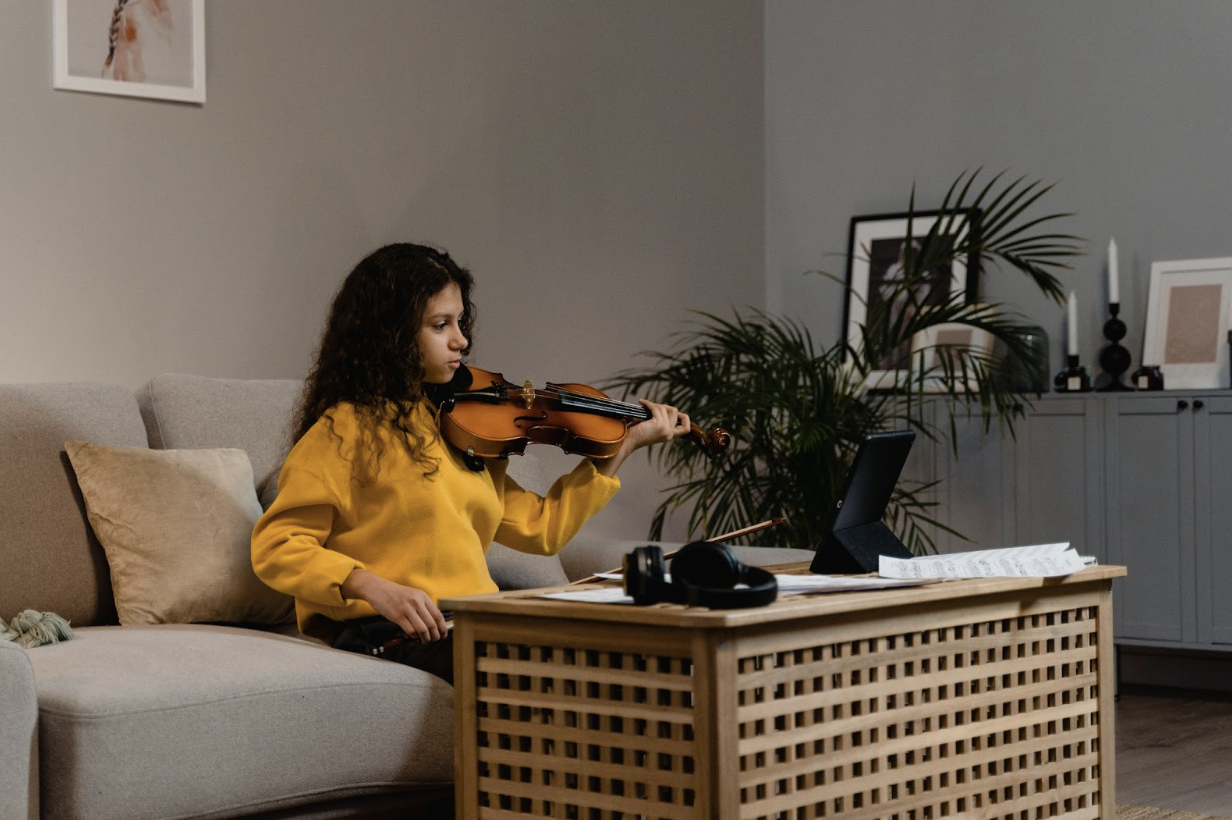15 Reasons Why Your Child Should Learn Piano At A Young Age7 min read
Developing new skills and exploring creativity through music is a beautiful childhood experience. Children often choose the piano as their first instrument among the many options available.
It is a beautiful and versatile instrument, but learning to play the piano at a young age can provide numerous benefits that will last throughout a child’s life.
In this article, we’ll explore fifteen reasons your child should learn piano at a young age, from improving cognitive abilities to fostering social connections and cultivating music appreciation.
Contents
Develop Cognitive Skills
It has been shown that children’s cognitive abilities can be enhanced by learning to play piano. In addition, playing piano requires a great deal of concentration, which can help improve memory and executive functioning.
Additionally, research has shown that playing the piano can increase the density of neurons in the brain and encourage new pathways to be formed for processing information.
Students can improve their academic performance by doing this, such as completing mathematics tests. But, overall, playing the piano is an excellent way for children to develop their cognitive skills and set themselves up for success in many areas of life.
Enhance Creativity And Imagination
Music is a powerful tool for encouraging imagination and inventiveness, as it allows children to think beyond the notes on the page and explore different playing techniques, musical genres, and styles of composition.
Thus, they can gain a deeper understanding of themselves. In addition, playing music with others can also help children learn how to collaborate and communicate effectively, which are essential skills both in and out of school.
Boosts Confidence
In particular, children may find it challenging to learn a new instrument. The confidence and skills of these individuals can be gradually developed with practice and patience.
Focusing on mastering one or multiple musical elements at once is a great way to help them feel more comfortable playing. Then, as they start to feel more confident in their abilities, it can be incredibly rewarding for them to be able to play a piece from beginning to end entirely on their own.
This sense of accomplishment can motivate them to continue practicing and improving, leading to even greater growth and success in the future. In addition, you can diversify their confidence by giving them quality gear like the Kawai KDP120 piano. Compare the Kawai KDP120 review to learn more about the different specifications.
Develops Discipline
Practicing regularly and putting in the effort to master a piece teaches children the value of hard work and perseverance. Then, as they start to see progress and improvement, it can gratify them and help build their confidence in their musical abilities and within themselves.
By setting goals and working towards them, children learn important life skills such as commitment, determination, and how to achieve success through hard work.
Teaches Patience
By setting goals and working towards them, they learn the value of hard work and the satisfaction of achieving success through effort. This process also helps build resilience as children learn to overcome obstacles and persist in the face of difficulty.
Mastering a complex instrument like the piano can be an enriching experience that teaches children essential life skills such as confidence, determination, and perseverance, all of which will help them succeed in future challenges.
Improves Hand-Eye Coordination
As they practice playing the notes on a piano, they improve their ability to read music scores and place their fingers in the correct positions. Precision and coordination are essential for this task.
These skills are transferable to other hobbies or activities that require coordinated movements, such as sports, dance, or even typing on a keyboard. By developing strong hand-eye coordination through early piano lessons, children can set themselves up for success in various areas throughout their lives.
Sharpens Listening Skills
Learning music early can help sharpen a child’s listening skills, which are essential for success in many areas of life. For example, piano lessons require children to listen carefully and observe the sounds made by different musical instruments, helping them develop their ability to distinguish between different tones and pitches.
As they receive guidance from their tutor and adjust their playing style based on feedback, they improve their active listening capabilities. Students can benefit from this skill as they progress in school and outside of it.
Enhances Fine Motor Skills
Playing piano helps children improve fine motor control, an important skill for daily activities. As they work the keys, their hands and fingers become more adept at controlling movements in a sophisticated manner, leading to improvements not only in their piano playing but also in their writing and other physical activities like sports.
Coordinating both hands together while playing the piano also helps to improve their sense of coordination over time. By developing strong fine motor skills through piano lessons, children can become more confident and capable in various activities throughout their lives.
Provides Stress Relief
Playing the piano can provide children with a creative outlet for stress relief, allowing them to express their emotions in a non-verbal way. This can be especially helpful during difficult or stressful situations, as music can help them practice mindful breathing and find a sense of calm.
As they learn to play the piano at a young age, they will internalize these calming strategies and carry them with them throughout their lives. This helps them manage stress more effectively and encourages healthy emotional expression and communication.
Increases Academic Performance
Recent research has shown a strong link between learning a musical instrument and increased academic performance across subjects. This is because playing the piano requires children to practice self-regulation, discipline, and memorization, all crucial skills for academic success.
These skills not only help in the present but can also have long-lasting benefits for future academic and job performance. So if you’re looking for a way to give your child an edge academically, consider enrolling them in piano lessons.
Fosters Social Connections
Piano lessons can give children unique opportunities to foster social connections with their peers and instructors. By attending regular piano lessons and participating in group classes and performances, they can develop a sense of belonging and camaraderie that can lead to healthy relationships as they grow older.
This quality time spent together not only helps build strong bonds but also allows children to discuss any problems or concerns they may have. Of course, it’s fun to make music together, too!
Builds Self-Expression Skills
They can explore their tastes, emotions, and experiences through composition and improvisation techniques and turn them into music. This is especially important for children who may be shy or introverted or have language difficulties or learning disabilities.
By making music on their own terms, they can find a creative outlet for their feelings to help increase self-esteem and build confidence. Additionally, creating music allows children to develop problem-solving skills and think outside the box.
Cultivates Appreciation For Music
As they learn to play and expand their repertoire, they become more interested in exploring new genres and styles. Through this process, children can better understand the diversity of musical expression, melodic rhythms, techniques, and musical nuances from different genres worldwide.
This exposure to various types of music broadens their horizons and helps them develop a more sophisticated ear for music. They will be able to recognize different musical elements and appreciate the unique qualities of each genre. With this knowledge, they can explore new avenues for creative expression and continue to grow as musicians.
Provides A Lifelong Hobby
Research has shown that playing an instrument like the piano can bring motivation and self-satisfaction over time, helping children stay engaged in something they love.
This is because learning and mastering new skills on the piano is rewarding and fulfilling, providing a sense of accomplishment and pride. Additionally, playing the piano encourages creativity, expression, and exploration as children brew their own ideas and acquire new skills.
Sparks Joy In Life
Both children and adults can feel the joy of playing and learning music. This joy is essential in keeping children motivated and engaged in learning, rather than giving up because it’s too hard or boring.
When playing music, children can also experience a range of emotions, from excitement to relaxation, which can help them develop emotional intelligence and empathy. It is also valuable to have the ability to focus and discipline when playing music, as these skills are instrumental in all kinds of situations.
Conclusion
There are many compelling reasons why your child should learn piano at a young age. Learning to play an instrument like the piano also provides children with a lifelong hobby that can bring joy and enrichment throughout their lives.
Whether your child has natural musical talent or not, learning to play the piano is an excellent way for them to develop important skills while having fun and exploring their creativity. By providing your child with the opportunity to learn piano at a young age, you are setting them up for success in all areas of life.





